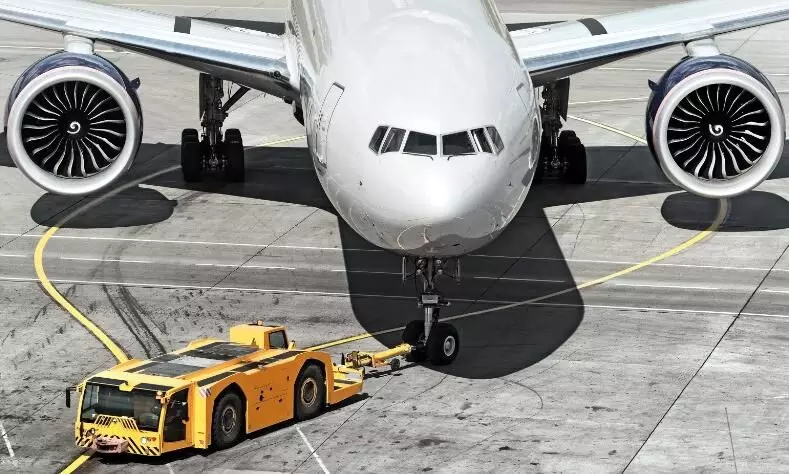
Aviation financing market demands structural changes from India
Beyond CTC and GIFT City, India needs to make structural changes to become a fair aviation financing, leasing market.
Beyond Cape Town Convention legislation and GIFT City, India needs to make structural changes to become a fair aviation financing and leasing market, let alone competitive. The challenges range from the very nature of the hyper-competitive aviation market to judicial proceedings to political interference.
On June 1, 2022, an Airbus A330-300 passenger aircraft of Russia's flag carrier Aeroflot landed in Sri Lanka's Bandaranaike International Airport at Colombo. It was supposed to fly back to Moscow on the next day however the Commercial High Court of Colombo granted a detainment of the aircraft upon an application by Celestial Aviation, a subsidiary of AerCap, who leased the aircraft to Aeroflot. On June 6, the court lifted its previous order and the aircraft flew back to Moscow on the same day.
Reports of the decision made under severe political pressure draw a true picture of the international aviation financing and leasing market, particularly under the Russia-Ukraine conflict scenario.
"This also seems to have strained the diplomatic relations between Russia and Sri Lanka," as Ajay Kumar, managing partner, KLA Legal Advocates & Solicitors puts it.
"Due to the cross-border nature of aviation transactions and aircraft operations, geopolitical equations affect this industry. Aeroflot incident is a perfect example of this where the Sri Lankan Court stayed the initial order and Aeroflot too suspended its commercial flight to Colombo," he added.
Syed Tamjeed Ahmad, co-managing partner at Spaviatech Law, a New Delhi and Bangalore-based law firm specialising in aviation/asset financing, made a note that the civil aviation industry suffers the most during conflict due to the globally oriented transactions. "What happened in Sri Lanka is a very common step taken by lessors to deal with a hostile lessee. Since the aircraft being in a foreign jurisdiction provides ostensibly a neutral venue for adjudication," he said.
"The changes that these events will have on the industry is that the lease transactions will incorporate more detailed and comprehensive clauses on such geopolitical issues that affect the rights of lessors," he added.
"The absence of CTC legislation results in Indian operators paying higher risk premiums, thus, the outflow of valuable foreign exchange from the country."
Ajay Kumar, KLA Legal Advocates & Solicitors
India is also one of the most difficult countries for aviation financing and leasing from both operational and legal points of view. The Indian government came up with a Bill in 2021 for the full adoption of the Cape Town Convention (CTC) and the industry stakeholders are expecting a full implementation of the same very soon. Gujarat International Finance Tec-City (GIFT City) is the only operational International Financial Services Centre (IFSC) in the country and it is an attempt to make India an aircraft leasing hub.
In fact, Kumar recently incorporated a new unit in the GIFT City on behalf of a foreign lessor and he is one of the directors of this entity. "GIFT City, as we see it, is a part of a solution to many challenges that India faces currently. Before GIFT City, Indian operators, both cargo and passenger, had little option but to route their transactions through Ireland due to the favourable Indo-Irish DTAA (Double Taxation Avoidance Agreement). The GIFT City provides a similar benefit to the parties," he said.
However, Kumar also feels that there are structural issues that make India a complicated and uncompetitive market "such as payment of taxes (Goods & Service Tax or GST)) and other dues (airports and navigation charges) by a lessor at the time of a forced repossession."
"Indian lessees are required to execute Irrevocable Deregistration and Export Request Authorisation (IDERA) at the time of leasing of an aircraft. This IDERA is then recorded with the Directorate General of Civil Aviation (DGCA) and a Specific Reference Number (SRN) is obtained. Where an IDERA holder (overseas lessor/ lender) seeks to de-register the aircraft upon default by the lessee, the DGCA will de-register within five working days. However, The IDERA holder is required to pay the outstanding taxes and other dues before the aircraft is allowed to be exported. There is no mechanism in place at present by which the IDERA holder will know the GST amount to be paid. This information is available to the lessee who may not be willing to co-operate. In such a situation, the export process gets unduly delayed and results in loss of precious time and avoidable financial hardship to the lessor," he says.
"There had been a history of political interference in the operations of Air India, also mishandling of challenges at Jet Airways and Kingfisher while they were on a path of decline that eventually led to their closure."
Syed Tamjeed Ahmad, Spaviatech Law
Meanwhile, Ahmad also cited three structural problems in the Indian market: hyper-competitive landscape, insolvency structure and regulatory interference.
According to him, the Indian aviation market is hyper-price sensitive and hyper-competitive, "which certainly is not a good mix for any industry," as he puts it. "Further, to add to this landscape, the cost of aviation turbine fuel (ATF) is also a pertinent aspect of the industry. There has been a growing demand to include ATF into GST since ATF is one of the most substantial costs associated with the running of an airline," he adds.
Ahmad said that Indian courts have had to deal with several insolvency matters, both before and after the development of IBC. He thinks that while the courts have done a great job, there are some areas that still need attention.
"One such area is cross-border insolvency. The Jet Airways case has shown us that having a feasible and predictable cross-border insolvency framework is highly pertinent to the industry. A robust cross-border insolvency scheme can ease, to an extent, the apprehensions of the overseas lessors/creditors about their aircraft in case the lessee airline goes into insolvency. This may translate into reduced lease rentals since the "risk cost" often packaged with the lease rentals may get reduced," he says.
While a lot of the issues in the aviation industry can only be solved by the codification of new laws, Ahmad opines that there exists a conundrum with respect to excessive and immoderate regulatory interference.
"India needs to find a balance. There had been a history of political interference in the operations of Air India, also mishandling of challenges at Jet Airways and Kingfisher while they were on a path of decline that eventually led to their closure. Misplaced policy moves did not allow a Tata-Singapore Airlines venture to fructify in the 1990s. Similarly, Chennai-based Paramount Airways had to shut shop within a few days of missing a payment to DGCA," he adds.
While noting that India's score in the CTC compliance Index issued by the Aviation Working Group (AWG) is 66/100, which is categorized as a medium, Kumar opined that such problems are faced by the lessors in most developing countries.
"This would include the South Asian countries and even Brazil thanks to their issues relating to Avianca Airlines. However, there are certain jurisdictions, such as Ireland (which is the global hub for aircraft leasing), Singapore, US, and other European countries where rules are well framed," he says.
Ahmad cited the example of consolidation in the US aviation market as an example to stabilize the Indian aviation market.
"Every 5-6 years we see an airline going into insolvency proceedings, or reaching at the threshold point. Whenever any such event occurs or is about to occur, it creates a ripple in the industry. In this regard, we can learn from the US aviation market where after a series of mergers and acquisitions over a period of time, the industry is primarily dominated by two-three players," he says.
Due to the recent disruptions, the aviation insurance risk premiums have gone up the world over. Reuters recently quoted Garrett Hanrahan, global head of aviation at insurance broker Marsh, saying, "Aviation war insurance was no longer available for Ukraine, Russia and Belarus as a result of the conflict. For the rest of the world, aviation war cover has doubled, as insurers try to recoup some of their losses."
Meanwhile, a new report by the Swiss Re Institute reads, "We estimate global nominal gross written premiums in aviation (and space) insurance could grow by 4 to 5 percent annually on average to 2030 in nominal terms (0.7-1.7 percent in real terms)."
Kumar notes that the absence of CTC legislation results in Indian operators paying higher risk premiums, thus, "outflow of valuable foreign exchange from the country." "Insurance companies have been under stress for quite some time now. Any incident from the 9/11 World Trade Center (WTC) attack to the Covid-19 pandemic, Russia- Ukraine war, Boeing 737 MAX-8 crisis or the ever-increasing threats of the curse of terrorism have all been responsible for this."
Meanwhile, Ahmad opines that the industry will see some claim litigation happening before the claims related to the Russia-Ukraine conflict are finally settled.
"Most of the lessors have written down their losses and are now pursuing them vigorously with their insurance providers. In fact, AerCap, the world's largest lessor, has made a $3.5 billion insurance claim. The response of insurance companies will finally come down to the wordings of the individual policy," he said.
This article was originally published in the July 2022 issue of The STAT Trade Times.




